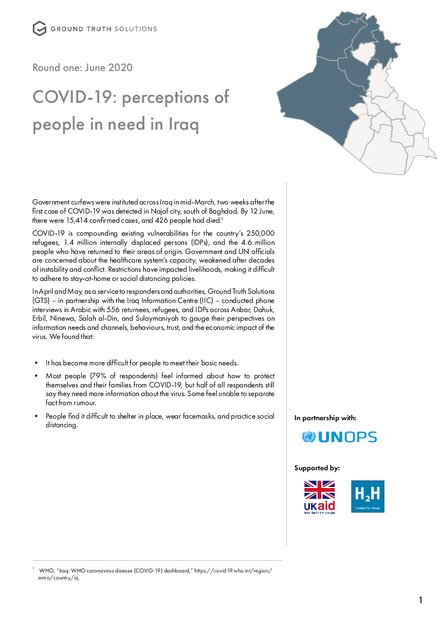
Government curfews were instituted across Iraq in mid-March, two weeks after the first case of COVID-19 was detected in Najaf city, south of Baghdad. By 12 June, there were 15,414 confirmed cases, and 426 people had died. COVID-19 is compounding existing vulnerabilities for the country’s 250,000 refugees, 1.4 million internally displaced persons (IDPs), and the 4.6 million people who have returned to their areas of origin.
Government and UN officials are concerned about the healthcare system’s capacity, weakened after decades of instability and conflict. Restrictions have impacted livelihoods, making it difficult to adhere to stay-at-home or social distancing policies. In April and May, as a service to responders and authorities, Ground Truth Solutions (GTS) – in partnership with the Iraq Information Centre (IIC) – conducted phone interviews in Arabic with 556 returnees, refugees, and IDPs across Anbar, Dahuk, Erbil, Ninewa, Salah al-Din, and Sulaymaniyah to gauge their perspectives on information needs and channels, behaviours, trust, and the economic impact of the virus.
We found that:
- It has become more difficult for people to meet their basic needs.
- Most people (79% of respondents) feel informed about how to protect themselves and their families from COVID-19, but half of all respondents still say they need more information about the virus. Some feel unable to separate fact from rumour.
- People find it difficult to shelter in place, wear facemasks, and practice social distancing
